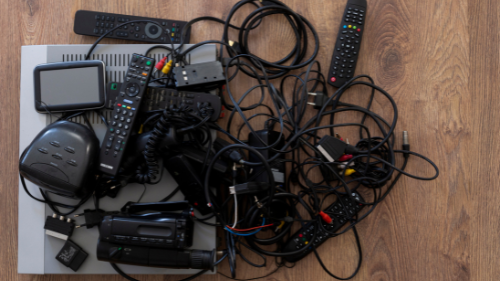Compulsive Hoarding and Why It's Hard to Let Go of Things
Keeping things may seem harmless, even useful. But when it becomes a
constant need to retain objects that we no longer use, need, or that cause us
discomfort, we talk about compulsive hoarding. This behavior goes beyond simple
disorder. It has deep emotional roots that often go unnoticed.
People who hoard do not do it just for pleasure. They do it because they
feel that letting go of certain objects is almost impossible. They may
experience anxiety, guilt, or sadness at the idea of letting go. And so, little
by little, spaces fill with things that represent memories, fears, or attempts
at control.
Behind Hoarding, There Are Often Experiences of Loss, Abandonment,
Insecurity, or Emotional Deficiencies
Objects function as a kind of refuge. They give a false sense of
stability, as if surrounding oneself with things avoids the void. There may
also be an unconscious association between having and feeling safe.
This Behavior Not Only Affects Physical Space
It also impacts emotional health. Living in a saturated environment can
generate stress, a sense of overwhelm, and difficulties concentrating.
Additionally, hoarding is often accompanied by isolation, shame, and conflict
with others in the environment.
To Start Letting Go, a Quick Cleanup is Not Enough
It is necessary to understand what you are emotionally holding onto
through the objects. Ask yourself what each thing you find hard to let go represents.
Does it connect you with someone? With a fear? With a stage you have not
closed?
The Process of Letting Go Must Be Gradual and Conscious
It is not about throwing everything away at once, but about honestly
reviewing what adds and what subtracts in your life. Start with a small space,
a box, a drawer. Evaluate if what you keep brings you well-being or just takes
up space.
Practicing Physical Detachment Also Trains You to Let Go Emotionally
Because each object you let go reminds you that you can live lighter,
without clinging to what is no longer useful or necessary.
If you feel that hoarding overwhelms you or that you cannot let go of
the anguish, seeking professional help is the best option. A therapist helps
discover the emotional origin of that pattern and accompanies you in the
transformation process.
It is Not About Having Less for the Sake of Having Less
It is about reclaiming the internal space that is freed when you stop
carrying what you no longer need.



